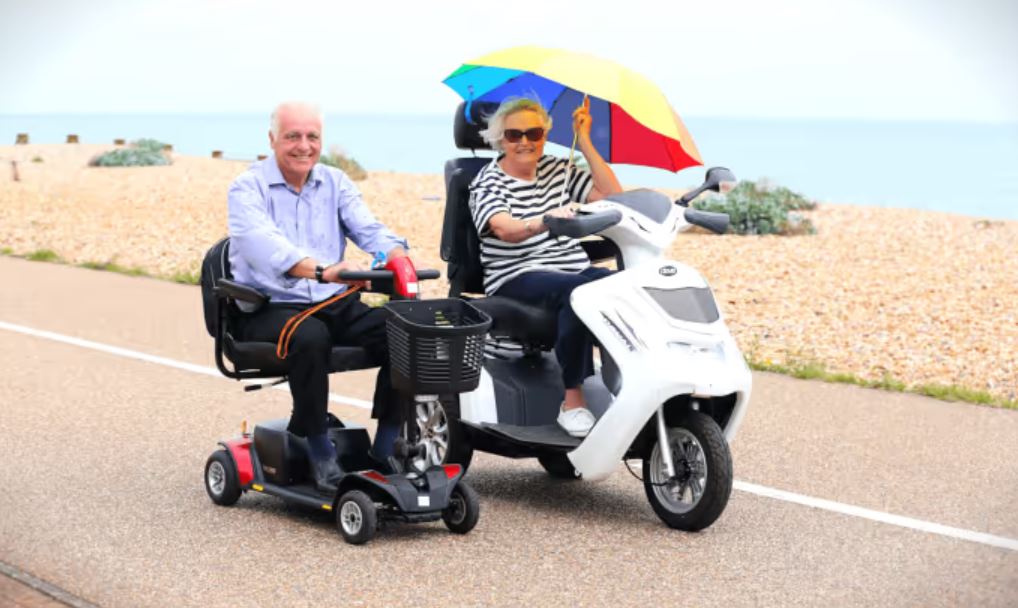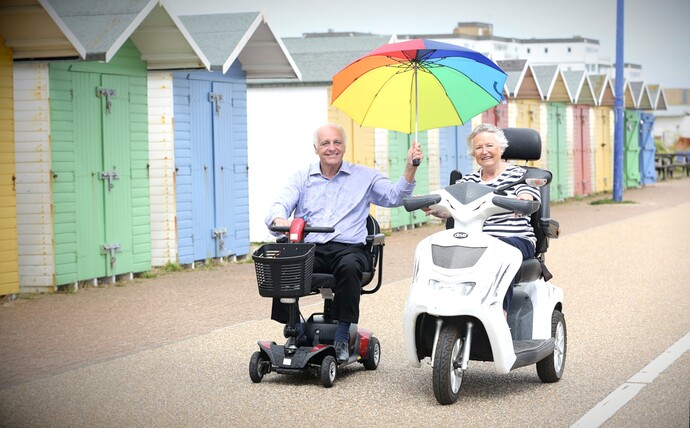Cycle theft is the UK's forgotten crime
September 3, 2024

Cycle theft is the perennial problem nobody seems to care about.
Despite the significant distress, inconvenience and financial loss caused by bike thieves, all too often it's brushed off as a petty crime that does not warrant investigation. The upshot is hardly anyone gets prosecuted for it.
Almost 90 per cent of bike thefts reported in England in 2022 went unsolved. Ministry of Justice records show that in the five years to June 2022, only 159 people (out of an estimated 350,000 reported bike theft cases) were found guilty, and only two were handed custodial sentences.
Why is it that bike theft is treated with such indifference, and why do the few initiatives designed to tackle it seem destined to fail? Moreover, why do bike manufacturers appear uninterested in making their products more secure?
{{cta-cycling}}
Bikes viewed as low-value
One key reason cycle theft isn’t taken seriously is the perception that bikes are low-value items. As a result, cycle theft investigations are cursory at best.
In fact, many UK police forces now issue an online crime reference number with no further action taken. It's why so many victims don’t even bother reporting the crime at all, knowing that the odds of seeing their bike again are slim to none.
Worse still, bike theft has a disproportionate effect on the young and disadvantaged. According to the ONS, victims are most likely to be under 35, earn less than £10,000 per year, and live in urban areas, particularly in places of “high incivility”. These groups are less likely to have access to secure storage, and cycle insurance may be out of reach.
Response to bike crime is feeble
The response to these startling crime statistics is feeble. Various bike registration schemes have popped up across the UK, hailed as a potential solution to the scourge of cycle theft. The idea is simple: cyclists register their bike’s details in a national database, making it easier for the police to identify stolen bikes and return them to their owners. But there’s a catch. For starters, registration is entirely voluntary, which means participation is patchy at best. And even if a bike is registered, there’s very little chance it will be recovered.
Then there’s the role of bike manufacturers, who could do more to make their products theft-resistant. Unfortunately, advanced security features like integrated locks or GPS trackers would drive up production costs, leading to higher prices that might put off potential buyers. In a market where price sensitivity is high, manufacturers are reluctant to make such investment. Besides, stolen bikes create demand for new bikes.
The exception is e-bike makers, some of whom now incorporate trackers, and even software to disable the electronics of a stolen electric bicycle.
Proactive approach to cycling
A proactive approach to cycling see countries like the Netherlands mandate high-quality, secure bike parking in new building developments. Maybe we'll get something like that here in the UK, but in the meantime it's down to cyclists themselves to protect their bikes.
Cycle insurance can’t prevent theft, but a good policy will get you back on the road quickly. And if you’re covered with the ETA, you won’t have to worry about devaluation – however old your bike.
Where do stolen bicycles end up?
There are different types of cycle thief. The opportunistic criminal is poorly equipped and is on the lookout for an easy target. The bicycles he steals will be sold quickly, locally and for little money. Dedicated cycle thieves carry specialist tools and may even be stealing to order. These criminals are prolific and often use online marketplaces to sell stolen bicycles so it's very much a case of buyer beware.
And when thieves are foiled by a robust bike lock, they turn their attention to bike parts. In our experience as the UK's longest established specialist cycle insurance provider, many thieves now target bike components such as shifters and seats.
Protect yourself from cycle theft
Bike thieves target particular cycle racks at particular times. Check the cycle stand itself for signs of tampering. Some thieves will cut away a section of a Sheffield Strand and disguise the damage with stickers so they can return later to quickly remove any bike secured to it. See the photo at the top of this page for evidence of this trick.
If stealing from your shed, thieves routinely overlook other valuable items in favour of a bike. From a thief’s perspective, it’s pretty much the perfect crime; most bicycles are easy to steal, difficult to trace and a breeze to sell on.
- Make the cycle theft someone else's problem - invest in a good insurance policy. The ETA is the UK's longest established specialist provider and named the UK's most ethical.
- Invest as much as you can afford in your lock and learn to use it properly – insurers specify that it needs to secure the bike frame for good reason. Don’t worry too much about getting the lock around the wheels or other bike parts as a good insurance policy will cover them against theft whether they are locked or not.
- Bike thieves might have the equipment to cut through padlocks and silently remove shed door hinges, but they don't like an alarm. A battery-powered motion sensor alarm costs from £5. Motion-activated security lights are cheap and easy to install and thieves don’t like them at all.
{{cta-cycling}}
The ethical choice
The ETA was established in 1990 as an ethical provider of green, reliable travel services. Over 30 years on, we continue to offer cycle insurance , breakdown cover and mobility scooter insurance while putting concern for the environment at the heart of all we do.
The Good Shopping Guide judges us to be the UK’s most ethical provider.
Information correct at time of publication.







